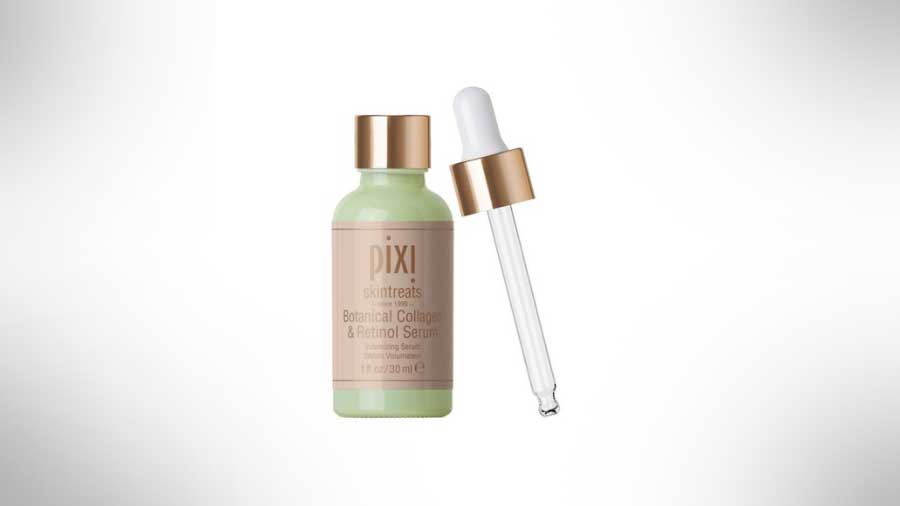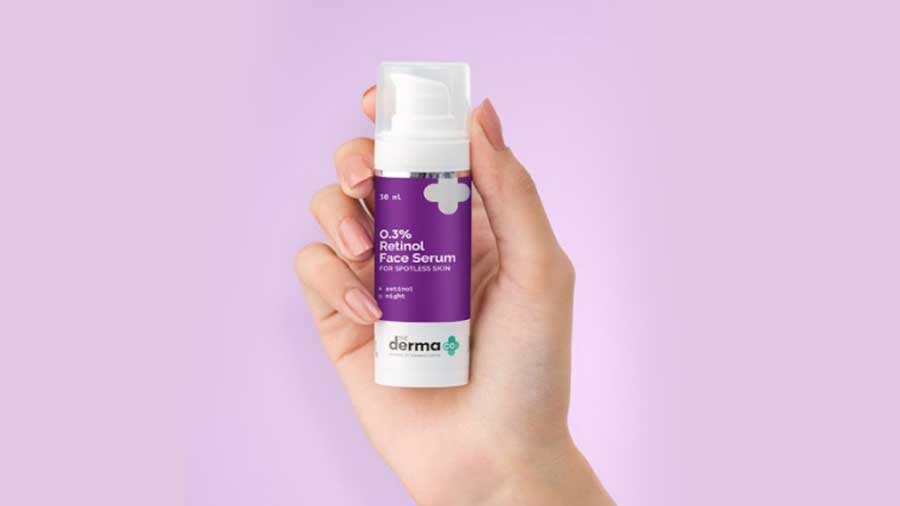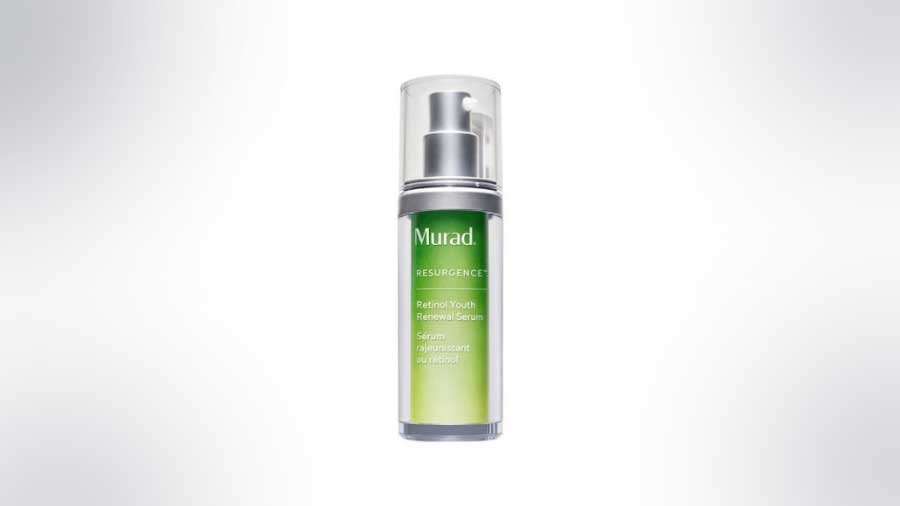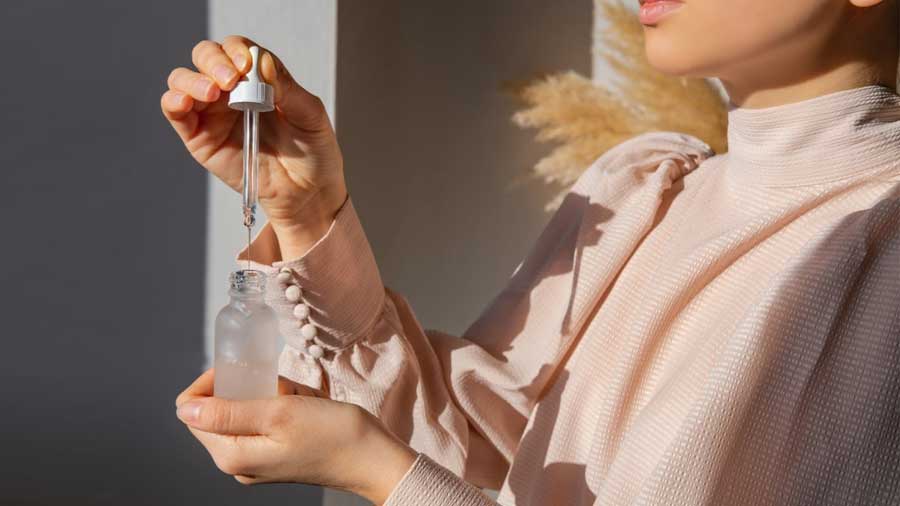Celebrities Jessica Alba and Rosie Huntington-Whiteley can’t get enough of it, dermatologists recommend it heartily, and beauty influencers swear by it. It is a magical skincare ingredient called ‘retinol’, and skincare obsessives are waxing eloquent about it.
Dr Koushik Lahiri, professor and senior consultant dermatologist, Apollo MultiSpeciality Hospital, Kolkata, put it under the microscope to tell us if it lives up to the hype. Here’s what we learned.

Dr Lahiri is a Professor and Senior Consultant Dermatologist at Apollo MultiSpeciality Hospital, Kolkata.
What is Retinol?
Retinol is a Vitamin A derivative that has anti-ageing effects on your skin, improving its texture and tone, and also treats other skin issues such as acne and dark spots. However, it does have side effects if not used correctly.
Do you need a prescription for it?
Retinol is an over-the-counter (OTC) product, for which a prescription is not required.
How does it work?
After it is applied, the enzymes in your skin convert it to retinoic acid (also known as tretinoin), the active form of vitamin A. This busts wrinkles and acne, and stimulates cell turnover and collagen production. Dr Lahiri says, “Once in the middle layer of skin, retinol helps neutralize free radicals to boost the production of elastin and collagen. This creates a ‘plumping’ effect that reduces the appearance of fine lines, wrinkles, and enlarged pores. At the same time, retinol has an exfoliating effect on the skin’s surface that can further improve texture and tone.”
Does it cause side-effects?
It’s unlikely to cause reactions if used carefully. For some, it may cause redness, itchiness, and peeling skin. These side effects are temporary. Using retinoids may aggravate allergic skin. Avoid using it if you have an active eczema rash. Retinol is not recommended for pregnant women.
Dr Lahiri says that it is friendly for Indian skin. “The cold and dry winter season in temperate countries may be the reason behind some irritation, if one were to apply too much product. In hot and humid countries like ours, if it is used in moderation, it should not pose any problem,” he says.
How should you start using it?
Start low and slow by opting for a gentler retinol and watching how your skin reacts to it. Don’t dive in with an ultra-concentrated retinol and use a bit at night or on alternate nights. Use sunscreen and avoid exposing your skin to direct sunlight after applying it.
Dr Lahiri says, “There is no age restriction for the use of retinoids. Instead, it is about what skin conditions are being treated. After sunscreen, it’s one of the best anti-aging ingredients around.”
How to use it with other skincare ingredients?
Retinol is best layered with products that have ingredients such as Niacinamide, Hyaluronic Acid and Peptides. Wait for 20-30 minutes before applying further skincare. Always use a high broad spectrum SPF when using retinol. While layering ingredients, apply products based on their consistency i.e, from thinnest to thickest.
Do not use it with exfoliators, drying agents such as astringents and toners, and Benzoyl Peroxide.
A pick of the latest retinoids:

Pixi Collagen and Retinol Serum
This serum helps restore your skin's natural plumpness and elasticity and gives you a ‘just had a good night's sleep’ look.
Shop here.

The Derma Co. 0.3% Retinol Serum
This budget-friendly serum is infused with retinol and vitamin C. It targets deep lines and wrinkles and boosts the skin’s collagen and elastin production.
Shop here.

Murad Retinol Youth Renewal Serum
Suitable for all skin types, this powerful serum is an investment for your daily regimen. It visibly reduces wrinkles, age spots and acne scars.
Shop here.
